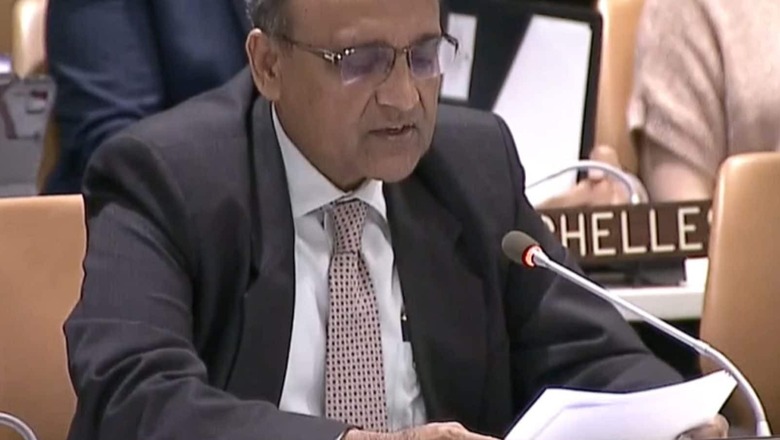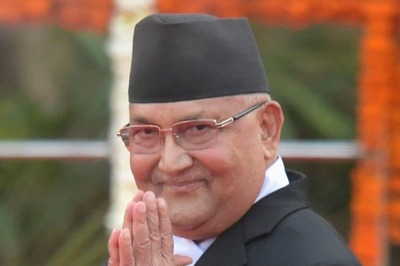India at UN: Onus of Reaching 'Global Net Zero' by 2050 on Developed Countries, Says Envoy Tirumurti

views
India and nine other countries jointly told the United Nations on Tuesday that the onus of reaching “global net zero” by 2050 is on developed countries. During a programme that was part of World Environment Day celebrations, India’s envoy to the UN said developing countries need more time than 2050 to reach set goals.
Indian ambassador to the UN, TS Tirumurti, spoke on behalf of 10 countries including India and China. Bolivia, Gabon, Iran, Iraq, Mali, Nicaragua, Panama and Syria were also part of the cross-regional joint statement on global net zero.
Tirumurti said as logical conclusion of the Article 4 of the Paris Agreement, when net zero is considered, it should be “global net zero” and not “individual net zero” for 2050. Any other interpretation will be contrary to Article 4 of the Paris Agreement, the envoy added.
“We need a clear recognition that developing countries will need much longer beyond 2050 to reach net zero given their overarching goals of poverty eradication and development and will peak after developed countries. They will need to be given additional time frame to peak and go towards net zero, which will be beyond 2050,” Tirumurti said.
According to the United Nations website, net zero simply means cutting greenhouse gas emissions to as close to zero as possible, with any remaining emissions re-absorbed from the atmosphere, by oceans and forests for instance. It is important because the science clearly shows that in order to avert the worst impacts of climate change, global temperature increase needs to be limited to 1.5 degrees Celsius above pre-industrial levels.
At present, the planet is already about 1.1 degrees Celsius warmer than it was in the late 1800s, and emissions are rising still. According to the Paris Agreement, to keep global warming to no more than 1.5 degrees Celsius, emissions need to be reduced by 45 per cent by 2030 and reach net zero by 2050.
In this context, Tirumurti said, “It is clear that a global net zero, where developing countries take longer to reach net zero, can only be achieved if developed countries reach net zero earlier than 2050. Therefore, developed countries must reach net zero well before 2050.”
The UN states that achieving the net-zero goal is one of the greatest challenges faced by the world as it calls for a complete transformation of production, consumption, and movement. The energy sector is the source of three-quarters of greenhouse gas emissions and holds the key to averting the worst effects of climate change. Replacing polluting coal, gas and oil-fired power with energy from renewable sources, such as wind or solar, would dramatically reduce carbon emissions, as per the UN.
Many countries, cities, businesses and other institutions have adopted net-zero goals. Over 70 countries, including the biggest polluters – China, the United States, and the European Union – have set a net-zero target, covering about 76% of global emissions, according to the UN.
Read all the Latest India News here



















Comments
0 comment